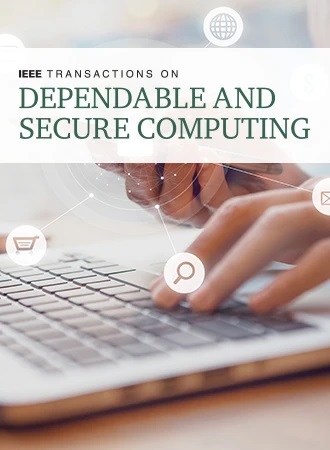A Temporal Chrominance Trigger for Clean-Label Backdoor Attack Against Anti-Spoof Rebroadcast Detection
IF 7.5
2区 计算机科学
Q1 COMPUTER SCIENCE, HARDWARE & ARCHITECTURE
IEEE Transactions on Dependable and Secure Computing
Pub Date : 2023-11-01
DOI:10.1109/tdsc.2022.3233519
引用次数: 1
Abstract
We propose a stealthy clean-label video backdoor attack against Deep Learning (DL)-based models aiming at detecting a particular class of spoofing attacks, namely video rebroadcast attacks. The injected backdoor does not affect spoofing detection in normal conditions, but induces a misclassification in the presence of a specific triggering signal. The proposed backdoor relies on a temporal trigger altering the average chrominance of the video sequence. The backdoor signal is designed by taking into account the peculiarities of the Human Visual System (HVS) to reduce the visibility of the trigger, thus increasing the stealthiness of the backdoor. To force the network to look at the presence of the trigger in the challenging clean-label scenario, we choose the poisoned samples used for the injection of the backdoor following a so-called Outlier Poisoning Strategy (OPS). According to OPS, the triggering signal is inserted in the training samples that the network finds more difficult to classify. The effectiveness of the proposed backdoor attack and its generality are validated experimentally on different datasets and anti-spoofing rebroadcast detection architectures.一种针对反欺骗重播检测的干净标签后门攻击的时间色度触发器
我们提出了一种针对基于深度学习(DL)的模型的隐形干净标签视频后门攻击,旨在检测一类特定的欺骗攻击,即视频重播攻击。注入的后门在正常情况下不影响欺骗检测,但在特定触发信号存在时诱导错误分类。所提出的后门依赖于一个改变视频序列平均色度的时间触发器。后门信号的设计考虑了人类视觉系统(HVS)的特性,降低了触发器的可见性,从而增加了后门的隐蔽性。为了迫使网络在具有挑战性的清洁标签场景中查看触发器的存在,我们根据所谓的离群中毒策略(OPS)选择用于注射后门的有毒样本。根据OPS,将触发信号插入到网络认为较难分类的训练样本中。在不同的数据集和反欺骗重播检测架构上,实验验证了后门攻击的有效性及其通用性。
本文章由计算机程序翻译,如有差异,请以英文原文为准。
求助全文
约1分钟内获得全文
求助全文
来源期刊

IEEE Transactions on Dependable and Secure Computing
工程技术-计算机:软件工程
CiteScore
11.20
自引率
5.50%
发文量
354
审稿时长
9 months
期刊介绍:
The "IEEE Transactions on Dependable and Secure Computing (TDSC)" is a prestigious journal that publishes high-quality, peer-reviewed research in the field of computer science, specifically targeting the development of dependable and secure computing systems and networks. This journal is dedicated to exploring the fundamental principles, methodologies, and mechanisms that enable the design, modeling, and evaluation of systems that meet the required levels of reliability, security, and performance.
The scope of TDSC includes research on measurement, modeling, and simulation techniques that contribute to the understanding and improvement of system performance under various constraints. It also covers the foundations necessary for the joint evaluation, verification, and design of systems that balance performance, security, and dependability.
By publishing archival research results, TDSC aims to provide a valuable resource for researchers, engineers, and practitioners working in the areas of cybersecurity, fault tolerance, and system reliability. The journal's focus on cutting-edge research ensures that it remains at the forefront of advancements in the field, promoting the development of technologies that are critical for the functioning of modern, complex systems.
 求助内容:
求助内容: 应助结果提醒方式:
应助结果提醒方式:


